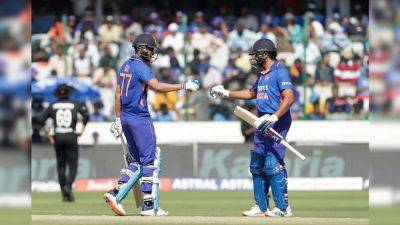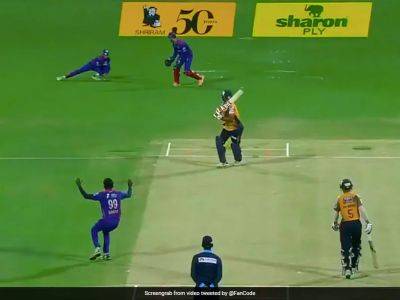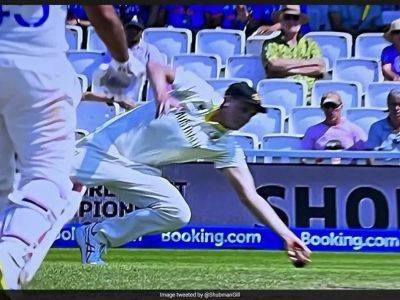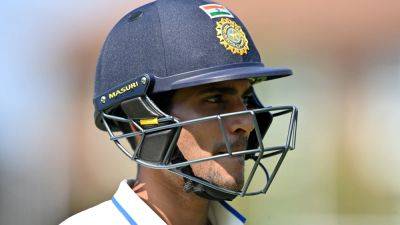India vs Australia, WTC Final: Was Shubman Gill Out Or Not Out? A Peep Into The Rulebook
Cameron Green's catch to dismiss Shubman Gill during India's second innings of the World Test Championship final has sparked huge controversy. In their chase of 444 runs against Australia in the summit clash, Shubman Gill and Rohit Sharma took India off to a solid start. However, a Scott Boland delivery took the outside edge of Gill's willow and Green pulled off a blinder at gully. The catch was referred to the third umpire, who eventually ruled it in favour of the Australians.
Given that the wicket came at a crucial juncture in the game, it added to the agony of the Indian fans.
As various cricket experts and analysts continue to debate about the legality of the catch, let's have a look at what does the Marylebone Cricket Club (MCC) -- the custodian of the laws of cricket -- say.
According to MCC -
33.2 A fair catch
33.2.2.1 the ball is held in the hand or hands of a fielder, even if the hand holding the ball is touching the ground, or is hugged to the body, or lodges in the external protective equipment worn by a fielder, or lodges accidentally in a fielder's clothing.
33.3 Making a catch
The act of making a catch shall start from the time when the ball first comes into contact with a fielder's person and shall end when a fielder obtains complete control over both the ball and his/her own movement.
In case of Gill's dismissal, it is however the interpretation of the umpire what he feels about when the catch was 'completed' and whether the fielder was in "complete control".








